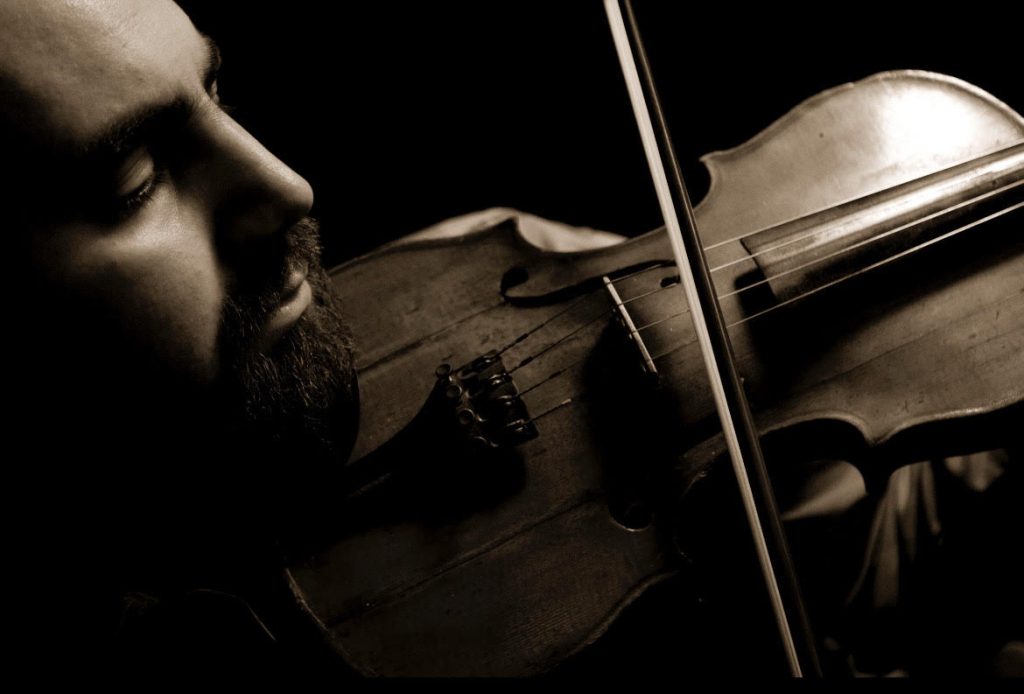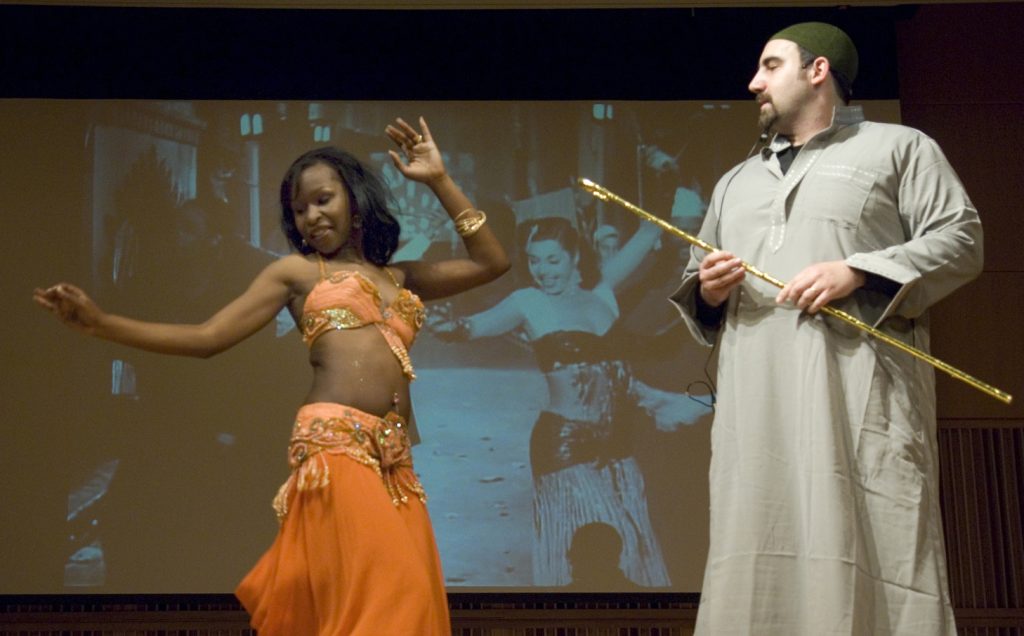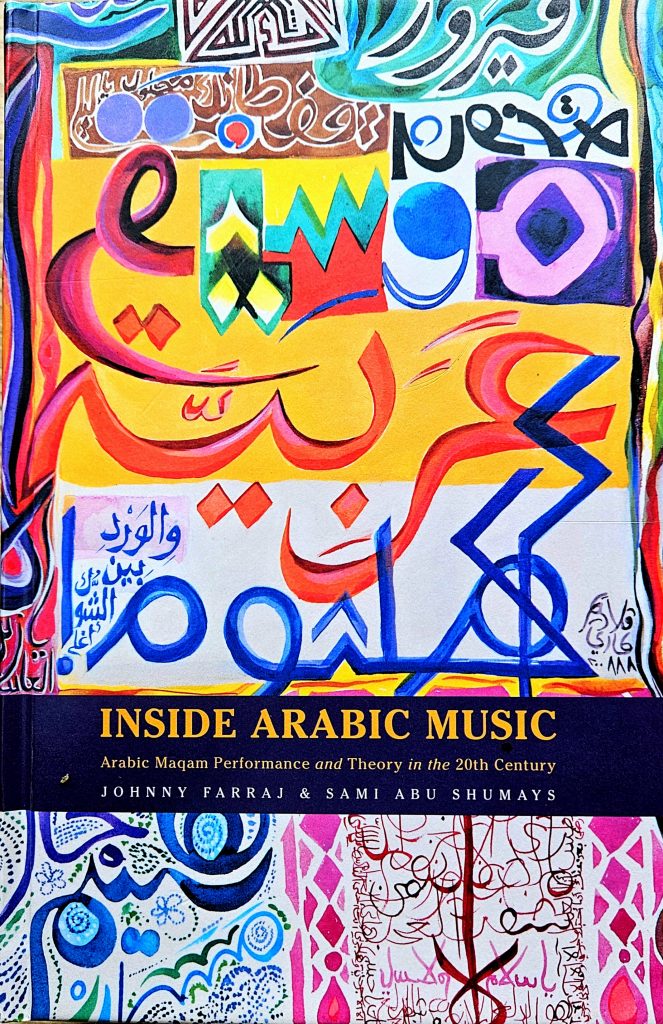Arabic Music Advocate Sami Abu Shumays Named Taproot Fellow

Courtesy Sami Abu Shumays
Sami Abu Shumays, a renowned Arab violinist and Deputy Director at Flushing Town Hall, has been awarded the inaugural Taproot Fellowship.
MOHAMED FARGHALY
mfarghaly@queensledger.com
Sami Abu Shumays, a prominent musician and advocate for cultural arts, has been awarded the inaugural Taproot Fellowship, an honor recognizing his significant contributions to traditional music and cultural preservation. The $60,000 fellowship includes $50,000 as an unrestricted grant and an additional $10,000 for community-focused initiatives.
Abu Shumays, the deputy director at Flushing Town Hall and a renowned Arab violinist, is one of only 25 fellows selected nationwide and the sole recipient from New York. He is also the only Arab musician among the awardees. The fellowship, part of the Taproot Artists & Community Trust by the Alliance for California Traditional Arts, aims to support and highlight accomplished traditional artists across the U.S.
“I see my fellow Taproot Artists as heroes and warriors for cultural survival and independence, and I am humbled to walk among them,” Abu Shumays said. “They’re carrying specific traditions that many other people don’t know about, or that are dying out. It’s very easy for people to want to assimilate and join the mainstream culture.”
Born in Pittsburgh, Pennsylvania, to a Palestinian father and a European descent mother, Abu Shumays initially pursued a career in Western classical music. His journey took a transformative turn during his senior year at Harvard University when he encountered Arab musician Simon Shaheen. This encounter ignited his passion for Arabic music, leading him to study in Egypt and Syria with noted musicians.
“I grew up in Pittsburgh, Pennsylvania, my father’s Palestinian, my mother’s European descent, so I grew up in a mixed household,” Abu Shumays said. “I went to college. I was originally going to study math and physics, but then I switched to music. It was that experience that got me to recognize the value of oral tradition. Learning music was much like learning language. You learn by speaking, you learn by doing.”
During his time studying in Egypt and Syria, the musician immersed himself deeply in the rich traditions of Arabic music, a transformative experience that shaped his career. From the fall of 2001 to early 2003, he lived in Cairo on a Fulbright Fellowship, where he studied Arabic music under the mentorship of esteemed musicians, including the influential Simon Shaheen.
His studies continued in Aleppo, Syria, where he further delved into the intricacies of the music. This period was pivotal for him, as he transitioned from learning Western classical music through notation to embracing the oral traditions of Arabic music. He came to appreciate the superiority of learning by ear, akin to acquiring a new language, and recognized the profound nuances that oral traditions capture. This experience not only solidified his dedication to becoming an Arabic musician but also highlighted the importance of preserving and teaching music through these age-old methods.

Balancing his administrative role with his passion for Arabic music presents significant challenges, as he cannot pursue his art full-time due to financial constraints.
“Learning informally and laterally from your colleagues, rather than just from teacher-student, is super important,” Abu Shumays said. “The informal aspect of making music, learning through doing, is as important or more important than the formal aspect.”
Since 2005, Abu Shumays has led the Arabic music and dance ensemble Zikrayat and has made significant strides in demystifying Arabic music through his book, Inside Arabic Music (Oxford University Press, 2019), which has become a leading text in English on the subject. He has also developed a teaching methodology that simplifies complex Arabic music scales for students, emphasizing oral learning and imitation.
“Arabic music has these complex microtonal scales,” Abu Shumays said. “For many years, people have tried to give all these complex mathematical definitions to them. But the way I teach it is just like learning an accent, a particular vowel sound. If you just listen and copy and imitate, you can learn these things in a very simple way.”
In addition to his musical achievements, Abu Shumays is deeply involved in the New York arts community. At Flushing Town Hall, a Smithsonian affiliate, he manages government relations, advocacy, and various administrative functions while supporting a diverse range of cultural programs. His role includes championing arts equity and supporting immigrant artists in Queens.
Balancing his role as Deputy Director at Flushing Town Hall with his passion for Arabic music presents a unique set of challenges, particularly since he cannot pursue music full-time.
As the Deputy Director, he manages critical responsibilities such as government affairs, HR, finance, and board relations, which demand considerable time and focus. Despite this, his dedication to Arabic music remains unwavering. The financial reality of the New York arts scene means he must maintain a day job to support himself, as a career solely in Arabic music is not financially viable for him at this stage.
“I will say that I’m honoring myself for keeping alive my passion for Arabic music, despite the fact that I’ve been able to make a living at it and keeping alive, maintaining my energy to keep getting better at it and keep teaching people, even while having my day job at Flushing Town Hall,” Abu Shumays said.
This balancing act requires time management and a deep personal commitment, as he strives to keep his musical passion alive while contributing significantly to the cultural landscape through his role at Flushing Town Hall. His ability to maintain this dual commitment is a testament to his resilience and enduring love for both his professional and artistic pursuits.
As part of the Taproot Fellowship, Abu Shumays will allocate his community grant to Brooklyn Maqam, an organization he has been involved with since its inception in 2018. The funding will support educational programs and administrative costs, including new classes on oud and percussion and the establishment of an Arabic chorus.
The Taproot Fellowship, awarded to a diverse group of artists and cultural bearers, reflects a broader commitment to sustaining traditional arts and fostering community-based cultural practices across the nation.

His book, Inside Arabic Music, has become a leading text in English on the subject, reflecting his commitment to making Arabic music accessible and understandable.


